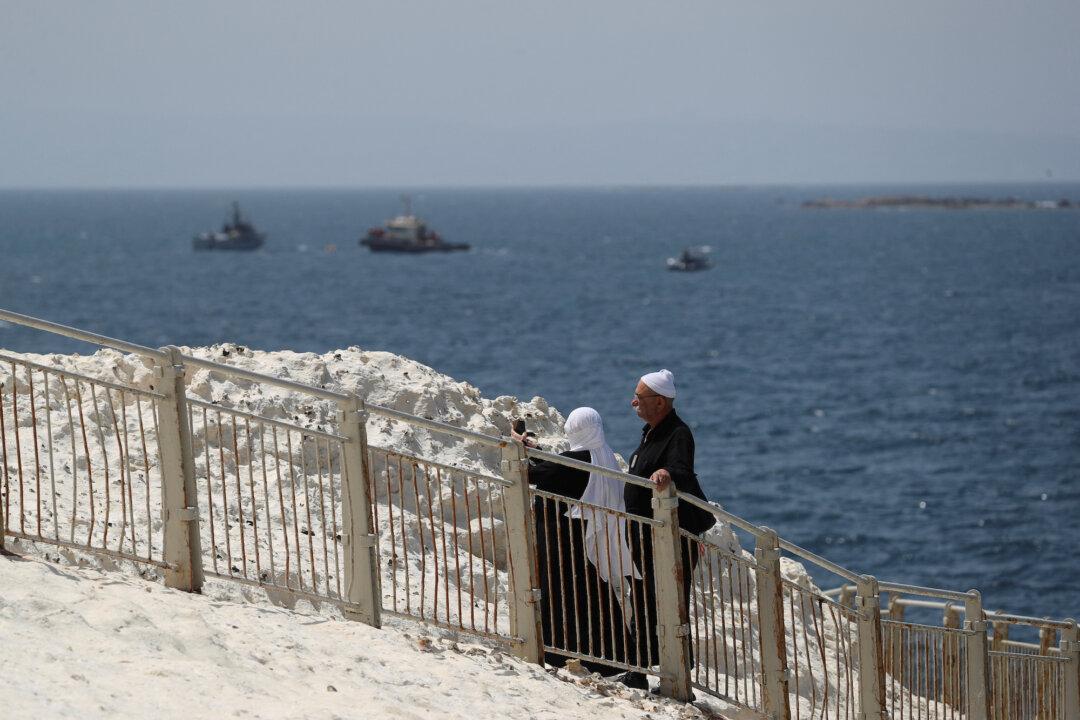HAIFA, Israel—Israel and Lebanon signed a maritime agreement on Oct. 27 that settles a sea border between the two states, which don’t have diplomatic relations and have been officially in a state of war for decades.
The deal, which has the potential to unlock additional natural gas production in the Mediterranean at a time of global energy flow disruptions, had been finalized on Oct. 11, according to Israeli and Lebanese officials.
Israeli Prime Minister Yair Lapid and Lebanese President Michel Aoun both hailed the U.S.-mediated agreement.
Lapid said in a statement that the deal is a “historic achievement that will strengthen Israeli security, will bring billions to Israel’s economy, and ensure stability on the northern border,” while Aoun wrote on Twitter on Oct. 13 that it “is a historic achievement because we were able to recover an area of 860 square kilometers that was the subject of a dispute.”
Aoun approved the deal in a letter signed in Baada, Lebanon, followed by Lapid’s signature on a separate copy in Jerusalem. A handover ceremony of less-senior officials took place at a United Nations peacekeeping base in Naqoura, Lebanon, along the border.
Gas Production Began the Day Before
Energean, a London-based energy exploration and production company, said it had started gas production on Oct. 26 at the offshore Karish gas field, located near the border between Israel and Lebanon.
The agreement places the Karish field inside Israeli territory, while providing Lebanon with full rights to develop the Qana or Sidon reservoirs nearby.
“We have achieved first #gas at #Karish. The gas will flow through our unique FPSO to deliver #energy market competition, #sustainabledevelopment & #energysecurity for the region & beyond,” Energean wrote on Twitter on Oct. 26.





